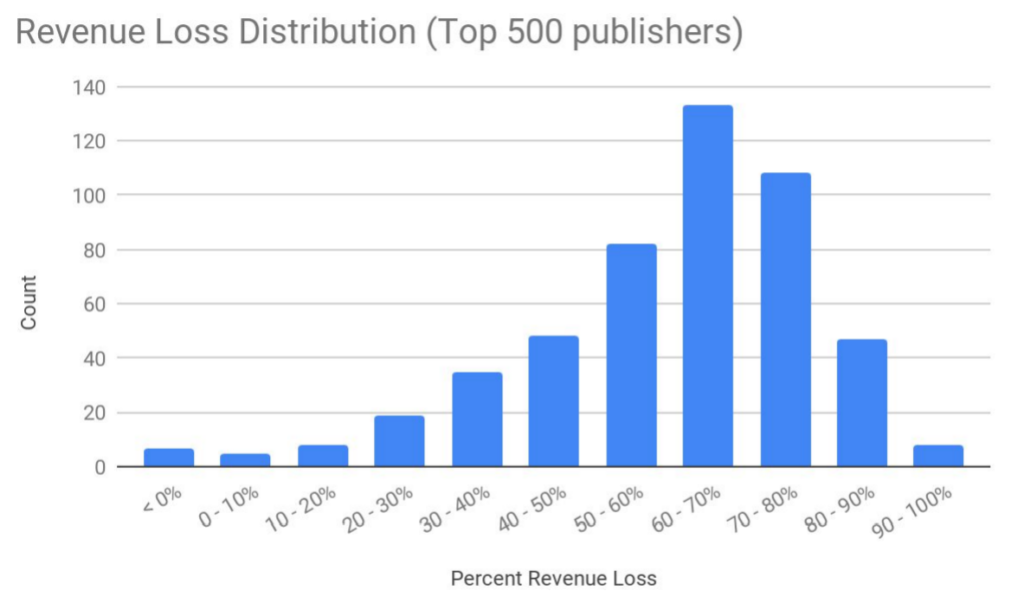Is RTB Dead in the Water? Part 2: The Impact on the RTB Ecosystem of More Rigorous Consent Gathering
by Mathew Broughton on 14th Oct 2019 in News

In part one of this exclusive series written by Lloyd Greenfield (pictured below), senior client partner at The Programmatic Advisory, we looked at the IAB’s Transparency and Consent Framework and how organisations could be incentivised to improve the way consent is gathered and passed through the ecosystem.
In this article, the impact on the ecosystem if most rigorous consent standards are met is examined – will it be the death of the RTB ecosystem as we know it?
The end of focused targeting?
Even the most optimistic marketer recognises that opted-in consent rates from users will fall if more rigour is applied to how consent is collected. By how much exactly is up for debate, as opt-in rates will vary depending on the type of business requesting it. Consensus suggests that the average person, outside of digital marketing, does not fully understand the value exchange between them and a free internet. Even with a full understanding, I don’t think the value of personalised advertising will be perceived as an equal exchange for personal data. This, combined with the necessity to collect valid user consent, will reduce the amount of personal data available in the RTB ecosystem. With less opted-in consent, the lower the chance RTB has in delivering personalised advertising at scale.

Lloyd Greenfield, Senior Client Partner, The Programmatic Advisory
Higher cost, lower provable efficiency
Quality user data will become scarce but won’t disappear. Reaching users that have opted into personalised advertising is likely to become more competitive in an auction-based ecosystem, due to the reduced supply. Advertisers may find that reaching their target audiences is more difficult and less efficient, while publishers are likely to see a wider range in CPMs driven by their traffic. A recent experiment from Google showed the impact of reduced user data, as it found that of the top 500 publishers, average advertiser revenue decreased by 52% (median of 64%) where third-party cookies weren’t present.

Measurement will also become a greater challenge for advertisers. Without user data, they won’t know what has been delivered to users and the impact of their digital advertising investment. To the average user, this may not seem like a big deal, but it could lead to less investment into a free and open internet and the content within it. Advertisers want to avoid targeting users that aren’t interested in their product as much as avoiding those that don’t respond to advertising. Unfortunately, without a robust way of measuring the impact of advertising, wasted ad spend is likely to increase. A lose-lose for both advertiser and user.
RTB is dead, long live RTB
RTB will not disappear but continue to evolve. In the long-term, I foresee two key changes:
Firstly, due to the potential scarcity in user data, advertisers will start to rely on contextual signals more to inform their RTB investments. Contextual data does not use personal data so is compliant with GDPR and can offer a competitive advantage to advertisers looking to find their target audiences. However, while it aids targeting capability, it does not solve the challenge of measurement.
Secondly, the industry will be forced to offer further incentives to users for their data. Whether it is sharing the profit of third-party data, enhancing publisher access, or giving greater loyalty rewards from advertisers, users will need to be made aware of the value of their data and then given a reason to share it. The stakeholders in the industry willing to do this now will benefit most from it. European Data Protection Authorities won’t give the ecosystem much more time and the best way to prepare for an ecosystem scarce of user data is to ensure you’re the business with it.
Getting ready for the new RTB reality
Mechanisms for a data sharing incentivisation solution exist today through some browsers and browser extensions, but crucially these do not integrate with the RTB ecosystem. It’s worth noting that the incentives for users of these solutions are often provided via blockchain-based currencies, which may not be a strong enough incentive for the average user. The RTB ecosystem should welcome a similar model through its own development or integrate with these existing solutions.
Developing a new solution may require investment from several stakeholders across the supply chain that may not be ready for change. Integration with an existing solution is unlikely when some of these suppliers are openly criticising the RTB ecosystem for its shortcomings. Regardless of this, the industry needs to accept the objective of GDPR, and similar regulations, by having an open conversation with users about their data, the importance of it and its value.
So, is RTB dead in the water? No, it might just need a more GDPR compliant lifejacket.








Follow ExchangeWire